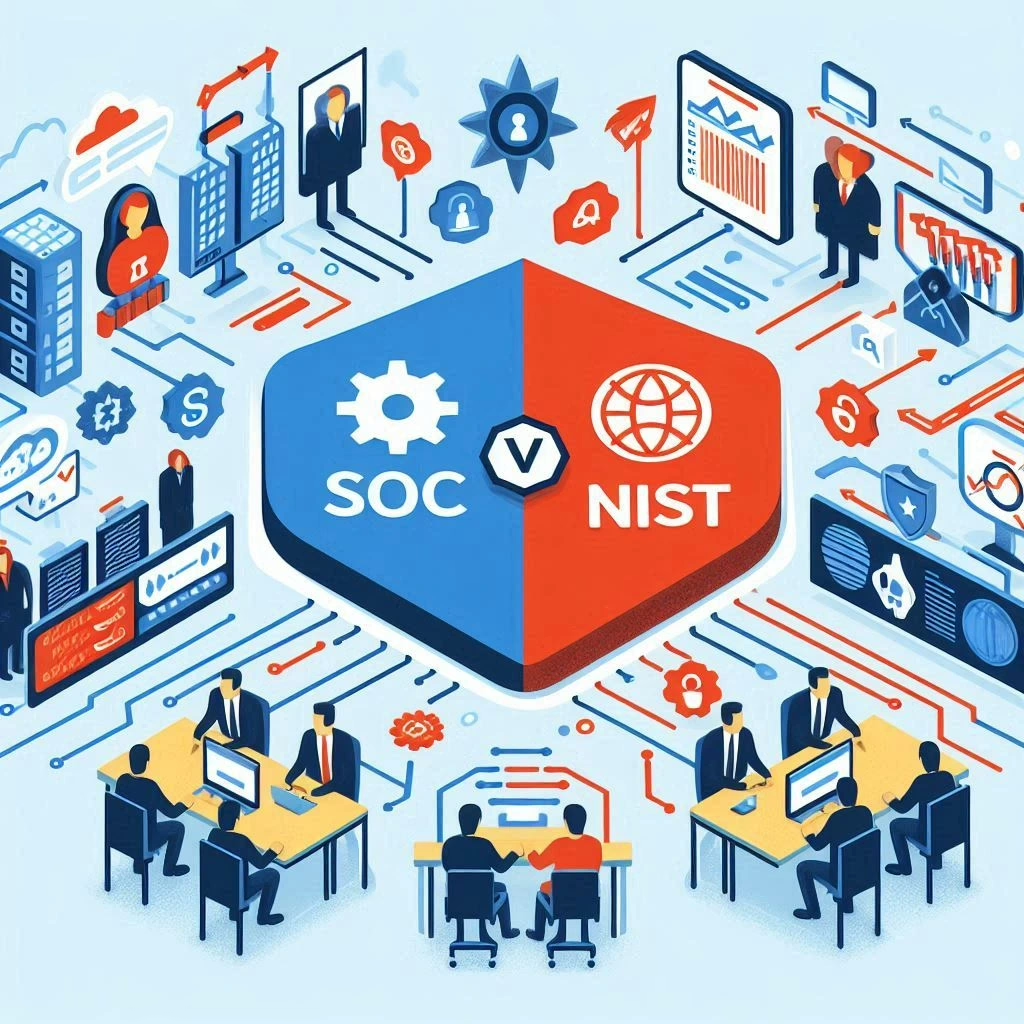In the realm of internal auditing, call center audits play a crucial role in ensuring that organizations maintain high standards of service quality and compliance. A call center audit is the systematic review and evaluation of the quality assurance processes for both incoming and outgoing calls. This process is essential for identifying areas of improvement, enhancing customer experience, and ensuring that agents adhere to established protocols and regulations [5].
As call centers often handle sensitive customer information, they are subject to stringent privacy regulations such as the General Data Protection Regulation (GDPR) and the California Consumer Privacy Act (CCPA). These regulations impose strict guidelines on how personal data should be collected, processed, and stored, making it imperative for call centers to implement robust privacy measures [1].
The challenge for compliance officers and internal auditors lies in striking a balance between the effectiveness of the audit process and adherence to these privacy laws. While audits are necessary for evaluating performance and compliance, they must also respect the privacy rights of individuals. This necessitates a careful approach that incorporates privacy considerations into the audit framework, ensuring that the organization not only meets its auditing objectives but also protects sensitive data and builds trust with customers [4].
As the landscape of privacy regulations continues to evolve, understanding the intersection of call center audits and privacy concerns is vital for compliance officers and internal auditors. This section will explore the importance of call center audits, the impact of privacy regulations, and strategies for achieving a harmonious balance between auditing needs and privacy compliance.
Understanding Privacy Regulations
In the realm of call center audits, compliance with privacy regulations is paramount. As organizations strive to balance auditing needs with the protection of personal data, it is essential to understand the key privacy regulations that impact call center operations. Below is an overview of significant regulations, including the General Data Protection Regulation (GDPR), the California Consumer Privacy Act (CCPA), and other relevant laws.
General Data Protection Regulation (GDPR)
The GDPR, implemented on May 25, 2018, is a comprehensive data privacy regulation that governs how personal data of individuals within the European Union (EU) is handled. Its implications for data handling in call centers are profound:
- Data Protection Requirements: Call centers must implement stringent measures to protect personal data, ensuring that it is processed lawfully, transparently, and for specific purposes. This includes obtaining explicit consent from individuals before processing their data [3][9].
- Fines for Non-Compliance: Organizations can face significant fines for violations, with penalties reaching up to €20 million or 4% of annual global turnover, whichever is higher. This financial risk underscores the importance of compliance in call center operations [1].
- Data Subject Rights: GDPR grants individuals rights over their data, including the right to access, rectify, and erase their personal information. Call centers must have processes in place to facilitate these rights, which can complicate audit procedures [6].
California Consumer Privacy Act (CCPA)
The CCPA, effective January 1, 2020, is a landmark privacy law that enhances consumer rights regarding personal data in California. Key aspects include:
- Consumer Rights: Similar to GDPR, the CCPA allows consumers to request access to their data, request deletion, and opt-out of the sale of their personal information. Call centers must be prepared to handle these requests efficiently [8].
- Fines for Violations: The CCPA imposes fines of up to $7,500 for intentional violations and $2,500 for unintentional violations, emphasizing the need for compliance in call center operations [7].
- Transparency Requirements: Businesses must provide clear information about their data collection and processing practices, which is crucial for maintaining consumer trust and meeting regulatory obligations [6][5].
Other Relevant Laws and Regulations
In addition to GDPR and CCPA, other regulations may impact call centers, particularly those operating in specific sectors:
- Health Insurance Portability and Accountability Act (HIPAA): For call centers handling protected health information (PHI), compliance with HIPAA is essential. This regulation mandates strict safeguards to protect patient data, including confidentiality and security measures [11].
- Payment Card Industry Data Security Standard (PCI DSS): Call centers that process payment information must adhere to PCI DSS requirements, which include maintaining a secure environment for handling cardholder data.
The Role of Data Subject Rights
Data subject rights play a critical role in the context of call center operations. These rights not only empower individuals but also impose obligations on organizations:
- Facilitating Rights: Call centers must establish processes to enable individuals to exercise their rights under GDPR and CCPA, such as accessing their data or requesting its deletion. This can create challenges during audits, as compliance officers must ensure that these processes are effective and well-documented [3][8].
- Balancing Auditing Needs with Privacy: Internal auditors must navigate the complexities of privacy regulations while conducting audits. This includes ensuring that data handling practices align with regulatory requirements without compromising the integrity of the audit process [2][4].
Understanding and adhering to privacy regulations is crucial for call centers. Compliance officers and internal auditors must remain vigilant in their efforts to balance auditing needs with the protection of personal data, ensuring that their organizations meet both regulatory obligations and consumer expectations.
Challenges in Call Center Audits
Conducting audits in a call center environment presents unique challenges, particularly when it comes to balancing the need for transparency with the confidentiality of customer information. As compliance officers and internal auditors navigate these complexities, several key issues arise:
- Balancing Transparency with Confidentiality: Auditors must ensure that their evaluations do not compromise the privacy of customer data. This involves establishing clear audit criteria that respect confidentiality while still providing insights into call quality and compliance with regulations. The challenge lies in obtaining the necessary information without infringing on customer privacy rights, which can be particularly sensitive in industries like finance and healthcare [1].
- Identifying Areas of Risk: Auditors need to pinpoint potential risks within the call center operations without breaching privacy regulations. This requires a thorough understanding of the regulatory landscape and the specific privacy laws that apply to the organization. Auditors must develop strategies to assess risk areas, such as data handling practices and employee training, while ensuring that their methods do not violate any privacy standards.
- Ensuring Compliance and Operational Oversight: Maintaining compliance with privacy regulations is paramount, yet auditors must also ensure that operational oversight is effective. This dual focus can create tension, as compliance measures may sometimes hinder operational efficiency. Auditors must find a way to implement compliance checks that do not disrupt the call center’s workflow, which can be a significant challenge in fast-paced environments.
- Addressing Pushback from Call Center Staff: Auditors may encounter resistance from call center staff who may feel that audit procedures are intrusive or unnecessary. This pushback can stem from a lack of understanding of the audit’s purpose or concerns about how the findings will be used. To mitigate this, auditors should engage with staff early in the process, clearly communicating the benefits of the audit and how it contributes to overall service quality and compliance.
Call center audits require a careful balance between the need for thorough evaluations and the imperative to protect customer privacy. By addressing these challenges head-on, compliance officers and internal auditors can foster a culture of transparency and accountability while adhering to privacy regulations.
Best Practices for Conducting Call Center Audits
In the realm of internal auditing, particularly within call centers, balancing the need for thorough audits with the imperative of protecting individual privacy is crucial. Compliance officers and internal auditors must navigate privacy regulations while ensuring that audit objectives are met. Here are some best practices to consider:
- Incorporating Privacy by Design: This principle involves integrating privacy considerations into the audit process from the outset. Auditors should assess how personal data is collected, used, and stored during audits, ensuring that privacy is a foundational element rather than an afterthought. This proactive approach helps in identifying potential privacy risks early in the audit process and allows for the implementation of necessary safeguards [1].
- Implementing Data Minimization Strategies: Auditors should critically evaluate what data is essential for achieving audit objectives. By limiting the collection and processing of personal data to only what is necessary, organizations can significantly reduce privacy risks. This strategy not only complies with regulations but also fosters trust among customers and employees [2].
- Utilizing Anonymization and Aggregation Techniques: To protect individual privacy, auditors can employ techniques such as anonymization and data aggregation. Anonymization involves removing personally identifiable information from data sets, making it impossible to trace back to an individual. Aggregation combines data from multiple sources, providing insights without exposing individual data points. These techniques help maintain compliance with privacy regulations while still allowing auditors to analyze trends and performance metrics effectively [3].
- Training Auditors on Privacy Regulations and Ethical Practices: Continuous education on privacy laws and ethical auditing practices is essential for auditors. Training programs should cover relevant regulations, such as the General Data Protection Regulation (GDPR), and emphasize the importance of ethical considerations in auditing. By equipping auditors with the knowledge and skills to navigate privacy concerns, organizations can enhance their audit processes while safeguarding individual rights [4].
By adopting these best practices, compliance officers and internal auditors can effectively address privacy concerns in call center audits, ensuring that they meet regulatory requirements while achieving their audit objectives. This balanced approach not only protects individual privacy but also enhances the overall integrity and effectiveness of the auditing process.
Technological Solutions to Enhance Compliance
In the realm of call center audits, balancing the need for thorough oversight with the imperative of protecting customer privacy is a significant challenge. Compliance officers and internal auditors must leverage technological solutions that not only facilitate effective auditing but also adhere to stringent privacy regulations. Here are some key points to consider:
- Overview of Software Tools for Secure Data Handling and Storage: Modern call centers can utilize advanced software solutions that ensure secure data management. These tools often incorporate built-in encryption and access controls, which safeguard sensitive customer information during storage and transmission. Regular audits of these systems are essential to identify vulnerabilities and ensure compliance with data protection regulations [5].
- AI and Machine Learning for Pattern Identification: Artificial intelligence (AI) and machine learning technologies can play a pivotal role in compliance monitoring. These tools can analyze large datasets to identify patterns and trends without directly accessing personal data. By employing AI, call centers can proactively detect potential compliance breaches and enhance their overall management strategies, thereby reducing the risk of non-compliance [12][8].
- Call Recording and Transcription Technology: The use of call recording and transcription technologies is crucial for maintaining compliance during audits. These systems not only capture interactions for review but also ensure that recordings are stored securely, in accordance with regulations such as the General Data Protection Regulation (GDPR). Advanced analytics can help auditors assess the quality of customer interactions while ensuring that sensitive information is handled appropriately [10][14].
- Cybersecurity Measures for Protecting Sensitive Information: Implementing robust cybersecurity measures is vital for protecting sensitive customer information during audits. This includes deploying encrypted communication tools and virtual private networks (VPNs) to mitigate the risk of data interception or tampering. Continuous monitoring tools can also track access to sensitive data, ensuring that any potential risks are identified and addressed promptly [7].
By integrating these technological solutions, compliance officers and internal auditors can effectively conduct call center audits that respect privacy regulations while ensuring that the necessary oversight is maintained. This balance is essential for fostering trust and safeguarding customer data in an increasingly regulated environment.
Conclusion
In the realm of call center audits, addressing privacy concerns is not just a regulatory requirement but a fundamental aspect of maintaining trust and integrity in customer interactions. As compliance officers and internal auditors, it is crucial to recognize the delicate balance between fulfilling auditing needs and adhering to privacy regulations. This balance ensures that while organizations conduct thorough audits to assess compliance and operational efficiency, they also respect and protect the personal information of customers.
- Balancing Audit Needs with Privacy Regulations: The importance of this balance cannot be overstated. Audits are essential for identifying risks and ensuring compliance with various regulations, yet they must be conducted in a manner that safeguards sensitive data. This involves implementing robust data protection measures and ensuring that audit processes do not infringe on individual privacy rights. By prioritizing privacy, organizations can mitigate risks associated with data breaches and non-compliance, which can lead to significant financial and reputational damage.
- Call to Action for Compliance Officers and Auditors: It is imperative for compliance officers and internal auditors to prioritize privacy in their audit processes. This means not only adhering to existing regulations but also proactively assessing and updating privacy policies and practices. By integrating privacy considerations into the audit framework, organizations can enhance their compliance posture and build a culture of accountability and transparency.
- Staying Informed About Evolving Privacy Regulations: The landscape of privacy regulations is constantly evolving, and it is essential for professionals in the field to stay informed about these changes. Engaging in continuous education and training on best practices in data privacy will empower compliance officers and auditors to effectively navigate the complexities of privacy regulations. This proactive approach will not only ensure compliance but also foster a more secure and trustworthy environment for both customers and organizations.
In summary, addressing privacy concerns in call center audits is a critical component of effective compliance management. By balancing auditing needs with privacy regulations, prioritizing privacy in audit processes, and staying informed about evolving regulations, compliance officers and internal auditors can play a pivotal role in safeguarding personal information while fulfilling their auditing responsibilities.
Find out more about Shaun Stoltz https://www.shaunstoltz.com/about/
This post was written by an AI and reviewed/edited by a human.



